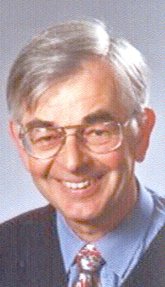Koenraad Kuiper, born in Hannover, Germany, in 1944. Ph.D. From Simon Fraser University, Burnaby Mountain. Associate Professor at the Linguistics Department at the University of Canterbury, Christchurch.
Fellow (1 September 2002 – 30 June 2003)
The project proposed for my stay at NIAS was one assessing theories of speech production involving phrasal lexical items such as idioms, in the light of evidence from a large corpus of ‘slips of the tongue’. The corpus was originally collected by David Tuggy of the Summer Institute of Linguistics and previously part-way coded by myself and colleagues at the Max Planck Institut für Psycholinguistic in Nijmegen in 2000. This project has, largely, been completed. I completed the coding, culling and checking of all of the data, which are now part of a database of just over 1000 errors. There are 25 analysis fields. It is probably the largest such database in existence. The further analysis of this data has focused on two areas: how the data might be congruent with the linguistic properties of phrasal lexical items, and how they might be explained by a psycholinguistic theory of speech production involving phrasal lexical items: the superlemma theory.
In a first report presented at the Max Planck Institute in May, I showed how the data followed from superlemma theory by proposing a taxonomy of six sources for spreading activation which might give rise to various kinds of slips of the tongue. The data showed that there were significant sets of data which could have arisen as a result of each such source of activation. One possible set had no members and the reason for this remains to be further explained. All other normally-recognised sources of syntactic and lexical slips such as malapropisms and exchanges were also found in the data showing that phrasal lexical items are not stored as ‘big words’ but are compositional units in their syntactic properties.
In addition I have completed two books which have been accepted for publication and two as yet unaccepted book manuscripts, edited three volumes of Te Reo, the journal of the NZ Linguistic Society and completed seven journal articles and four book chapters.
